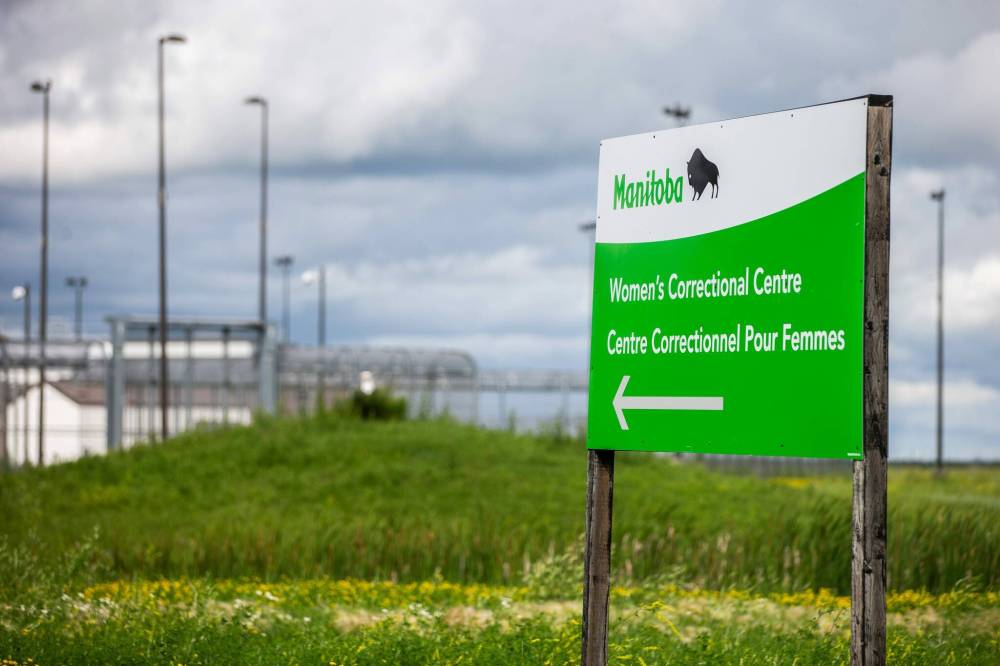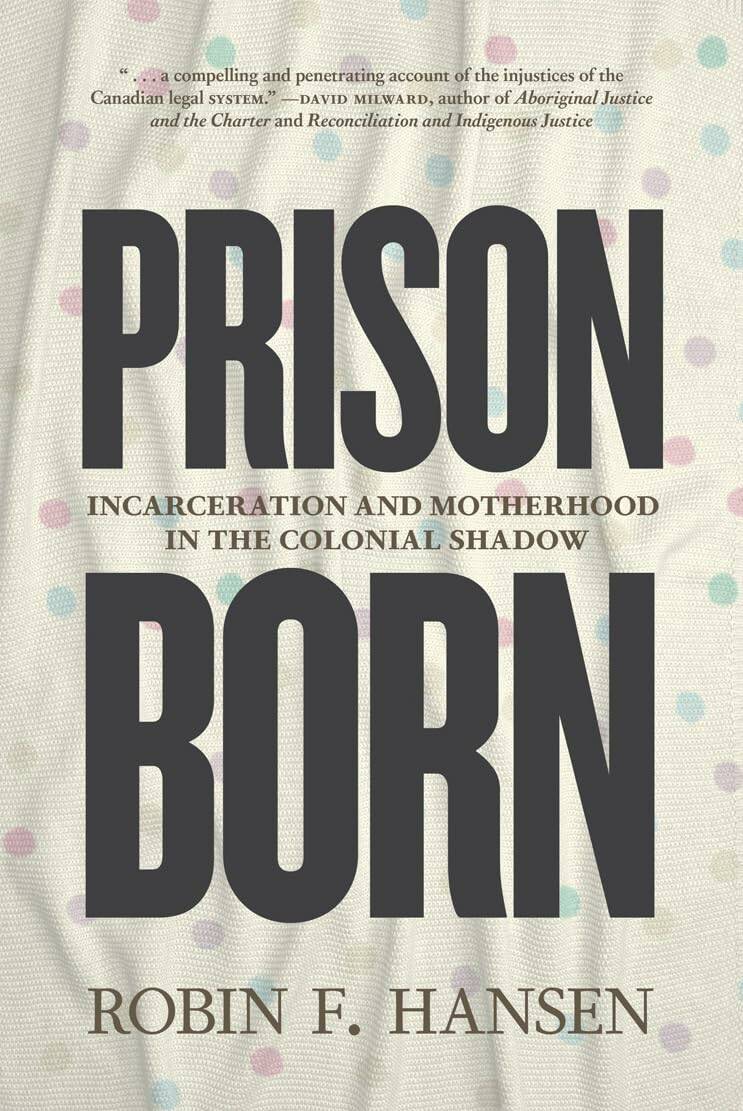Miscarriage of justice
Indigenous families disproportionately impacted by separating prison-born children from mothers
Advertisement
Read this article for free:
or
Already have an account? Log in here »
To continue reading, please subscribe:
Monthly Digital Subscription
$0 for the first 4 weeks*
- Enjoy unlimited reading on winnipegfreepress.com
- Read the E-Edition, our digital replica newspaper
- Access News Break, our award-winning app
- Play interactive puzzles
*No charge for 4 weeks then price increases to the regular rate of $19.00 plus GST every four weeks. Offer available to new and qualified returning subscribers only. Cancel any time.
Monthly Digital Subscription
$4.75/week*
- Enjoy unlimited reading on winnipegfreepress.com
- Read the E-Edition, our digital replica newspaper
- Access News Break, our award-winning app
- Play interactive puzzles
*Billed as $19 plus GST every four weeks. Cancel any time.
To continue reading, please subscribe:
Add Free Press access to your Brandon Sun subscription for only an additional
$1 for the first 4 weeks*
*Your next subscription payment will increase by $1.00 and you will be charged $16.99 plus GST for four weeks. After four weeks, your payment will increase to $23.99 plus GST every four weeks.
Read unlimited articles for free today:
or
Already have an account? Log in here »
Hey there, time traveller!
This article was published 25/01/2025 (291 days ago), so information in it may no longer be current.
For most of us, what we know about prisons comes mainly from TV and film. Activists such as Angela Davis contend this is intentional — the less we know about the workings of prisons, the more we can believe they are sites of objective justice.
Robin Hansen’s Prison Born adds to the list of overlooked situations in prison the instance of automatic separation — the act of the state legally taking a child away from their mother when the mother gives birth in prison.
Jacquie (pseudonym), a pregnant Indigenous woman who was seeking council, contacted Hansen, a white settler and law professor at the University of Saskatchewan. With three months left in her pregnancy, Jacquie had been sentenced to 13 months in jail.

Mikaela MacKenzie / Free Press files
Hansen argues the automatic separation of children from incarcerated mothers aligns with historical colonial initiatives such as the Sixties Scoop and the residential school program.
This guaranteed she would give birth in prison and thus lose custody of her child.
Focusing on Jacquie’s case study, Hansen carefully and patiently walks readers through numerous approaches to understanding automatic separation: Canadian legal theory and history, international law, colonialism and androcentrism (the centring of a male/masculine perspective).
Though an academic book at its core and extensively researched, the writing is accessible and will appeal to readers interested in the detailed theory and history of both Canadian law and international law. Hansen cites a sufficient amount of Indigenous theorists, but the book is written firmly from a critical settler perspective.
Automatic separation, according to Hansen, goes against the Charter rights of both the child and the mother. The child is not extended due process and his or her best interests are not taken into consideration, as in any other separation instance.
In the mother’s situation, Jacquie is denied medical care related to her pregnancy while incarcerated. Furthermore, she is shackled to her bed during labour (as is common in the case of pregnant women prisoners).
Indigenous women are egregiously disproportionately represented in Canadian prisons. Hansen thus argues that automatic separation is in alignment with the Canadian government’s other colonial initiatives aimed at separating Indigenous children from their families such as residential schools, the Sixties Scoop and the Millennium Scoop.

Prison Born
She maintains throughout her analysis that the Canadian court system is a colonial system. From its beginnings, Canada’s legal system conceptualized Canada as “perpetually innocent” and deliberately criminalized Indigenous people to gain access to land and resources.
The current over-incarceration of Indigenous people is a direct result of this colonial project. The “colonial lens” of the law, as Hansen refers to it, enabled the acquittal of Gerald Stanley in the 2016 killing of Colten Boushie of Cree Red Pheasant First Nation.
In an attempt to correct for some of these systemic inequalities, the 1999 Gladue decision requires courts to consider the background of Indigenous people when charged with a crime. Jacquie was a generational survivor of residential schools. Yet the judge refused to consider a different type of sentencing so that she could keep custody of her child.
It was only through an appeal, with Hansen’s help, that Jacquie was eventually able to stay with her child for a lengthened sentence under house arrest.
However, for the majority of pregnant women facing jail time, they will automatically lose custody of their child. Hansen contends this practice perpetuates cycles of forced generational separation, flying in the face of the government’s commitment to reconciliation efforts.
Prison Born joins a growing list of books aimed at critiques of the Canadian legal system that disproportionately and negatively impacts Indigenous people. It provides a reformist approach, demanding that the law work to protect, not only to punish.

Supplied photo
Robin F. Hansen
As Hansen concludes, “the legal system exists only as we make it,” and surely we must make it so that it is fair and just for everyone.
Serenity Joo is a professor at the University of Manitoba and volunteers with the Prison Libraries Association.


